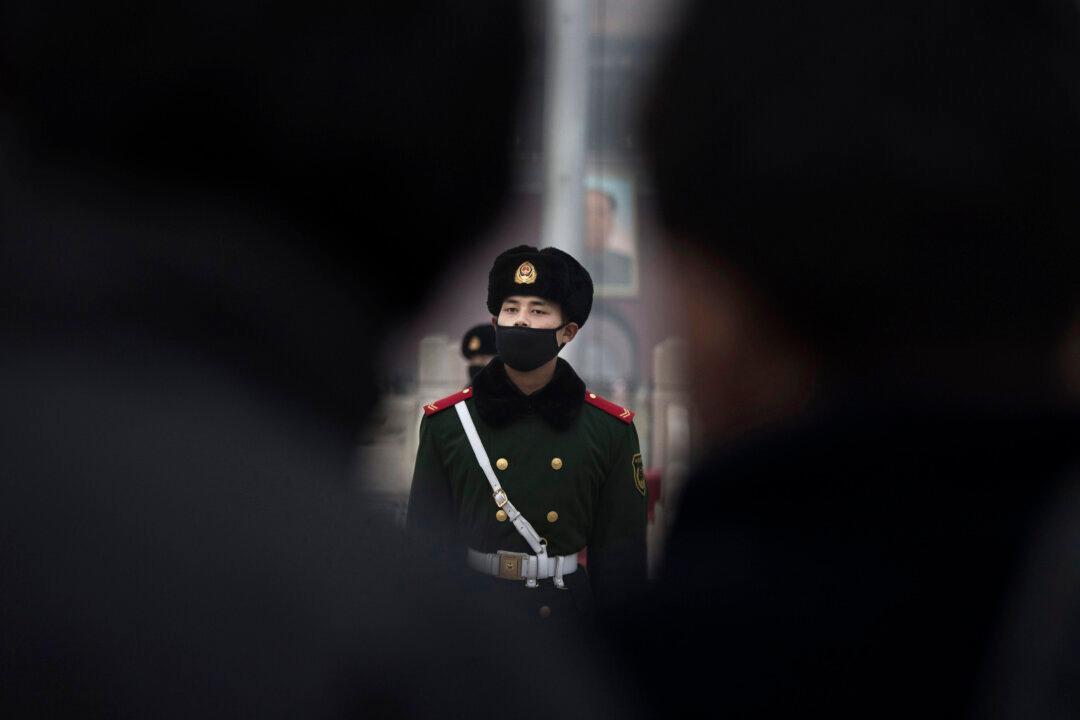Sculptor Chen Weiming is no stranger to Chen Jun, the man recently arrested over a bribery scheme to help the Chinese communist regime carry out its repression in the United States. He had heard Chen Jun‘s threats years ago.
“Let me tell you, if you have a Chinese passport, and we take a photo of you, you can never go back to China,” Chen Jun told him and other Chinese dissidents in Los Angeles during a heated exchange, the sculptor recalled.
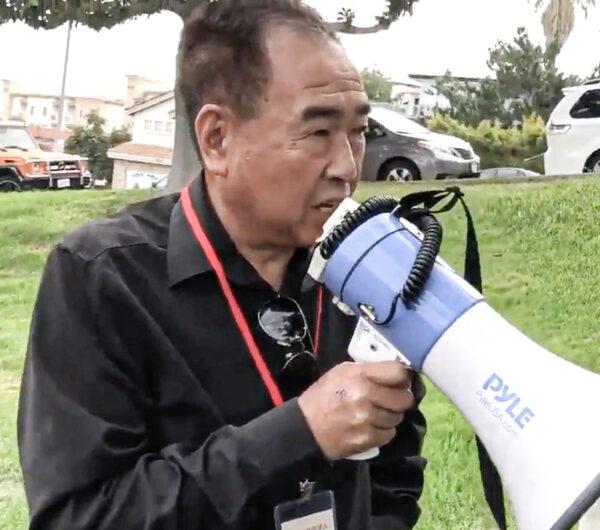
Chen Weiming and others were protesting a pro-Beijing flag-raising event organized by Chen Jun, one of many he had arranged in Monterey Park, California. As in other years, a Chinese flag was hoisted at Barnes Park awash with red decorations in celebration of the regime’s 70th anniversary.
“If you make it back, you will immediately get arrested,” Chen Jun said, amplifying his voice through a megaphone hung around his neck.
A Global Campaign of Repression
Falun Gong, which includes meditative exercises and moral teachings centered on the principles of truthfulness, compassion, and tolerance, has been a key target of the Chinese regime since 1999, when the regime began a ruthless crusade to eliminate the spiritual discipline. The Chinese Communist Party (CCP) viewed the huge popularity of the practice, which had attracted up to 100 million adherents at the time, as a threat to its authoritarian rule.
Such campaigns, collectively known as transnational repression, have recently come to the spotlight as U.S. prosecutors have brought charges against dozens of Chinese agents and U.S. citizens involved in regime-directed suppression plots on U.S. soil.

In the case of Chen Jun, prosecutors alleged that he and a co-defendant worked with officials in China to concoct a scheme to sabotage a U.S. nonprofit run by Falun Gong adherents by trying to get the organization’s tax-exempt status revoked.
Chen Jun, the court filing said, offered $50,000 to an undercover FBI agent who he thought was with the IRS to try to advance a fraudulent IRS whistleblower complaint against the nonprofit. In a recorded conversation, Chen said his goal was to help the regime “topple” the faith group.
Court filings said that Chen Jun worked under the direction of an unnamed Chinese official and was supplied money for the bribes by the regime.
He said the official is “the one that is always in charge of these matters.”
“They are like blood brothers,” Chen Jun once told the undercover FBI agent about his Chinese associates, according to the complaint. “We started this fight against [Falun Gong] twenty, thirty years ago. They are always with us.”

‘Covert Warfare’
For China analysts and advocates, the recent case represents but another example of a long-known sprawling campaign by Beijing to silence dissent abroad.“It’s kind of a pattern that’s emerging,” Laura Harth, campaign director for Safeguard Defenders, a group that focuses on China’s human rights, told The Epoch Times.
The bribery case, she said, is “the tip of the iceberg.”
But even so, Harth was stunned by the tactics used by Chen Jun and his co-conspirators as detailed by the Department of Justice.
The bribery scheme demonstrated the “breadth and creativeness” of the regime’s efforts, she said, as well as the “audacity by which they feel they can get away with” these actions.
The alleged attempt to subvert U.S. institutions also stood out to other China analysts.
“You’re not just talking anymore about organizing some counter-protesters, or trying to convince someone to come back to China, or monitoring a dissident. This was really an attempt to use institutions of the United States, including things like whistleblower systems and protections, to basically go after a perceived enemy of the CCP,” Sarah Cook, a senior China analyst at Freedom House, told The Epoch Times.

To her, it reveals both the “degree of effort and resources that the CCP is investing to target Falun Gong, at least in the United States,” and the “the lengths the CCP is willing to go to in terms of using democratic institutions against themselves.”
Nicholas Eftimiades, a former intelligence analyst for the CIA specialized in Chinese espionage, sees the latest case as part of Beijing’s “covert warfare”—an “extraordinarily far-ranging worldwide effort” from China to “influence and corrupt foreign governments and foreign political processes.”
‘Canary in the Coal Mine’
In Los Angeles County, 70-year-old Chen Jun, who also goes by John, has developed a reputation among the Chinese diaspora as a talking head for the Chinese regime. A veteran of China’s air force, Chen had been a trade delegate for Tianjin before emigrating to California, where he holds top positions in a slew of pro-Beijing organizations, including two he created himself, according to Chinese media reports. He has hosted roughly two dozen annual flag-raising events like that one in 2019 and penned several books trumpeting the regime’s narratives. He has mobilized local Chinese communities to welcome top Chinese officials during their visits to the United States, as well as organized protests that the regime deemed “patriotic,” the reports said.With his close alignment with the regime, it was unsurprising to some that he has kept in step with the regime on its suppression of Falun Gong.
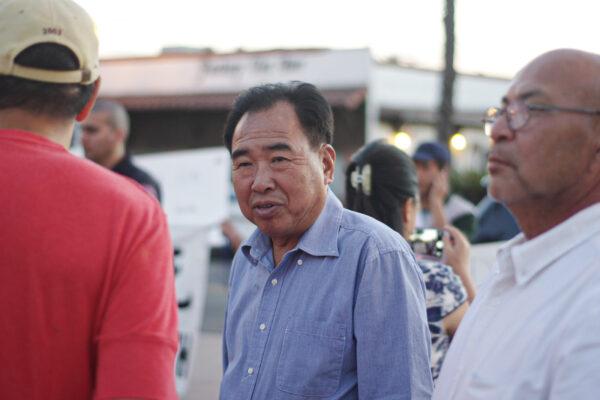
Wu Fan, a former chief editor of pro-democracy Chinese-language magazine Beijing Spring and commentator on China affairs, remembered debating the persecution with Chen Jun on the radio as early as 2001. In their approximately 20 other similar interactions on various China topics, Chen Jun had been parroting the regime’s talking points, Wu recalled.
“It seems that his life goal is to follow the CCP,” Wu told The Epoch Times.
Levi Browde, executive director of the New York-based Falun Dafa Information Center, said the U.S. action on the IRS bribery attempt, which was still unfolding at the time of the men’s arrest, shows that U.S. authorities have “really come up to speed on the sheer scope and scale of CCP infiltration into this country.”
“I’ve met a lot of people who think the Falun Gong issue really is the canary in the coal mine for all Americans,” he told The Epoch Times. In many ways, he said, he believes the Falun Gong community “has been a leading voice in trying to not only expose the persecution themselves, but also divulge the true nature of the CCP on the world stage.”
A Sculpture Targeted
Three days after the row at Barnes Park in 2019, Chen Weiming filed a lawsuit accusing Chen Jun of violating his free speech rights, although he eventually didn’t pursue it due to a lack of funds.The California pro-democracy artist found it apt that the Justice Department in its press release described Chen and his co-conspirator as “illegal agents” for Beijing.
“He is a CCP agent, no question,” Chen Weiming told The Epoch Times. “Otherwise, how can he as an individual declare that he can get me arrested? What power does he have?”
Chen Weiming, like others, has experienced the regime’s retaliation firsthand.

The sculpture, a bust statue depicting Xi as a coronavirus molecule, was demolished by vandals in July 2021 after the artist unveiled it to the public in Liberty Sculpture Park in Yermo, California. It’s unclear whether Ziburis, who was in New York City during that arson attack, had any involvement in the sculpture’s destruction, but two of his co-conspirators, one of whom is based in China, discussed such actions in undated conversations cited in the filing.
Regarding the recently publicized tax bribery scheme, Chinese agents paid $1,500 to a purported IRS agent to get tax returns of Chen Weiming, believing they could find evidence of tax evasion to discredit him.
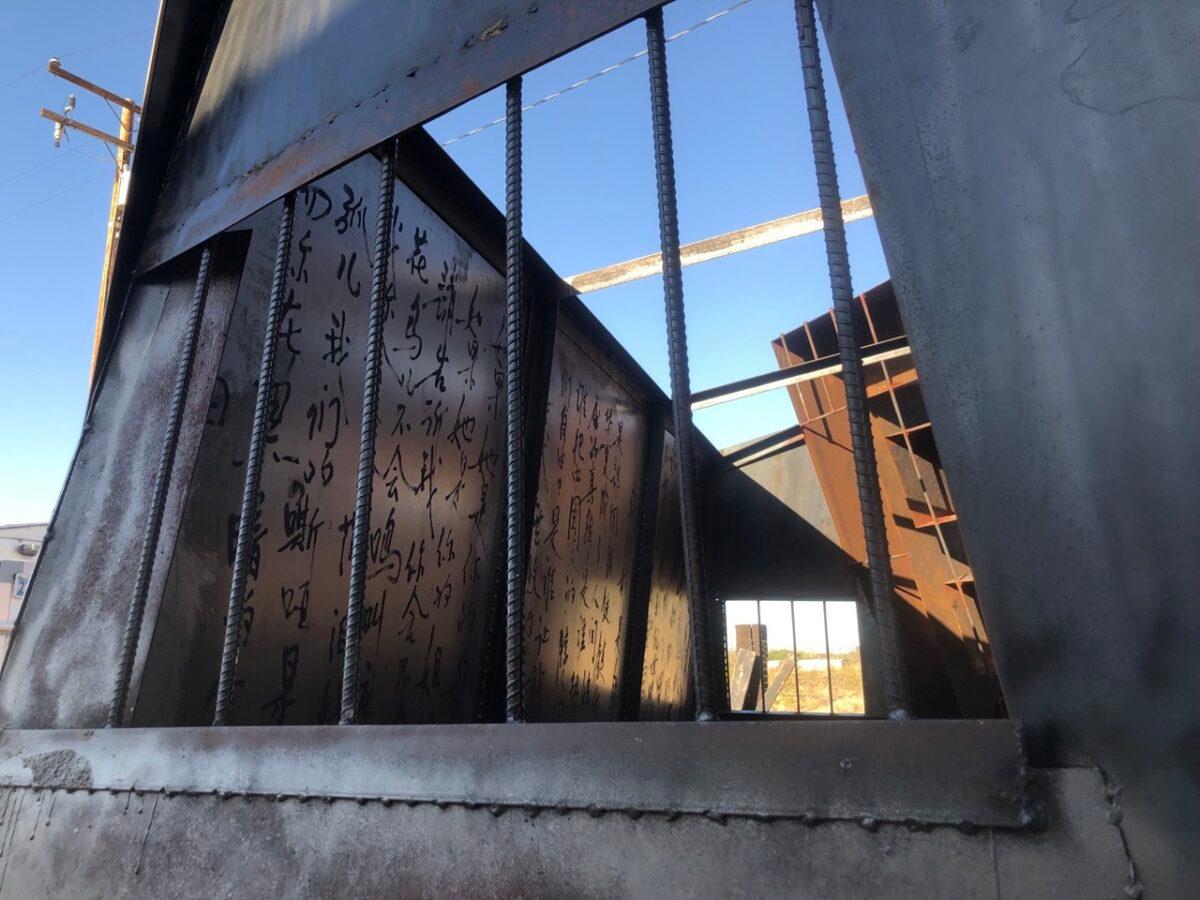
‘Wake-Up Call’
In Congress, some lawmakers are also taking note of the covert Chinese influence campaigns.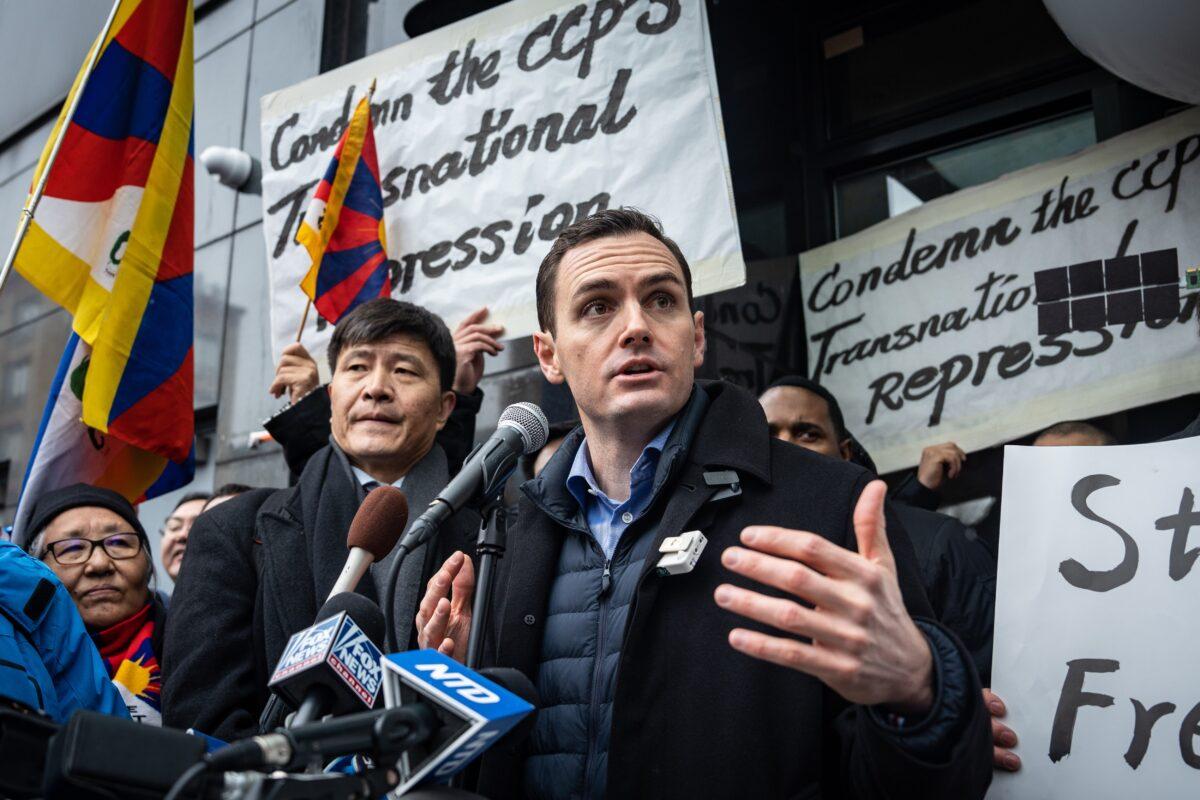
Rep. Ashley Hinson (R-Iowa), a member of the committee, said the revelation from the case is a “wake-up call to everyone here.”
“There’s nothing more that the Chinese Communist Party hates than people who are pursuing freedom—people who want to practice the religion they want to practice, what we have here in the United States—and that’s a threat to them,” Hinson said on NTD’s “Capitol Report” program.
Assessing the US Response
From the national security perspective, Eftimiades considers the repressive activities from China a reckoning call for nation states to reassess their relationship with China and decide whether the commercial benefits from China are worth the national security risks.In dealing with such state-sponsored “pervasive criminal activity,” law enforcement alone is not effective, he said.
The U.S. approach has to be comprehensive, strategic, and employing “all elements of national power ... because that’s the way China approaches the situation,” he said.
On a broader scale, the United States should also work in concert with allies, be it to issue sanctions or otherwise, to make deterrence effective globally, according to Eftimiades.
Eftimiades supports other penalties, such as placing perpetrators on the “no fly” list and barring investments into regional Chinese governments that are involved.
At the G-7 summit in Hiroshima last month, leaders of the member states called on China “not to conduct interference activities aimed at undermining the security and safety of our communities, the integrity of our democratic institutions, and our economic prosperity.”
“The net is closing in” against Beijing proxies, said the California dissident artist, adding that he’s glad the West has “finally become clear on the matter.”
“The CCP will never embrace Western values. As long as it has money and power, it will want to export its authoritarian model, and with it, reshape the entire world,” he said.
Eftimiades zeroed in on the need for a “whole-of-government” response to Beijing’s covert operation campaigns.
“It’s directed against our own citizens. ... The one thing [the government] is responsible for, above all others, is protecting its own people, and we’re failing in that regard,” Eftimiades said.
